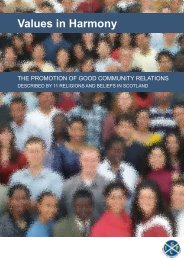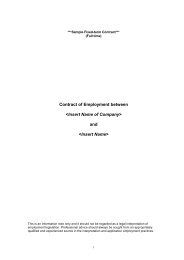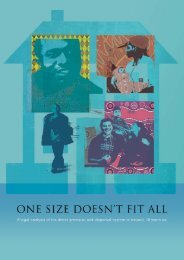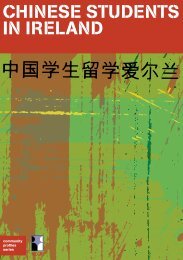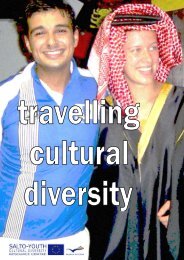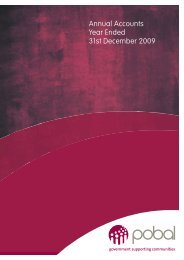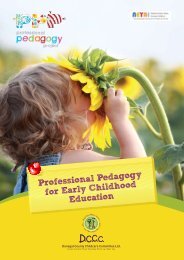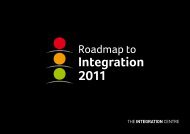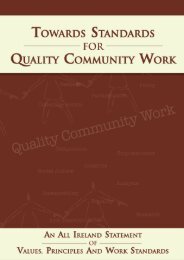Intercultural Education in the Post-Primary School - National Council ...
Intercultural Education in the Post-Primary School - National Council ...
Intercultural Education in the Post-Primary School - National Council ...
You also want an ePaper? Increase the reach of your titles
YUMPU automatically turns print PDFs into web optimized ePapers that Google loves.
situations through his/her learn<strong>in</strong>g of Irish.This becomes particularly important <strong>in</strong> <strong>the</strong>context of Gaelcholáistí or Gaeltachtschools. Students <strong>in</strong> such schools willdevelop <strong>in</strong>tercultural perspectives andcapacities through <strong>the</strong>ir learn<strong>in</strong>g oflanguage and o<strong>the</strong>r aspects of <strong>the</strong>curriculum. In this context, care can betaken <strong>in</strong> <strong>the</strong> selection of poems, stories,literature, case studies, role-plays andconversation topics <strong>in</strong> order to reflect <strong>the</strong><strong>the</strong>mes and concerns of <strong>in</strong>terculturaleducation.In schools where English is <strong>the</strong> medium of<strong>in</strong>struction, students learn Irish as a secondlanguage. A knowledge and experience <strong>in</strong>Irish as well as a positive attitude to <strong>the</strong>Irish language are important <strong>in</strong> enabl<strong>in</strong>g<strong>the</strong> student to def<strong>in</strong>e and express her or hiscultural identity. It is crucial, <strong>the</strong>refore,that <strong>the</strong> learn<strong>in</strong>g of Irish be a positive andreward<strong>in</strong>g experience for all students <strong>in</strong>Irish schools. Develop<strong>in</strong>g a positive senseof his or her own cultural identity is an<strong>in</strong>tegral part of <strong>the</strong> process of com<strong>in</strong>g torespect and engage positively with o<strong>the</strong>rcultures and, as such, has a central role <strong>in</strong><strong>in</strong>tercultural education. This, <strong>in</strong> turn, is akey component <strong>in</strong> enabl<strong>in</strong>g <strong>the</strong> student toengage positively and <strong>in</strong> an <strong>in</strong>terculturalway with o<strong>the</strong>r cultures.Learn<strong>in</strong>g Irish also provides an opportunityfor <strong>the</strong> student to recognise <strong>the</strong> value of,ga<strong>in</strong> an understand<strong>in</strong>g of, and engage <strong>in</strong><strong>the</strong> practice of multil<strong>in</strong>gualism, a practicethat is common <strong>in</strong> many countries andcultures throughout <strong>the</strong> world. As studentswork to develop <strong>the</strong>ir language capacity <strong>in</strong>Irish, <strong>the</strong>y are also given an opportunity tounderstand and empathise with <strong>the</strong>difficulties and challenge faced by thosewho f<strong>in</strong>d <strong>the</strong>mselves work<strong>in</strong>g through a106<strong>Intercultural</strong> <strong>Education</strong> <strong>in</strong> <strong>the</strong> <strong>Post</strong>-<strong>Primary</strong> <strong>School</strong>




